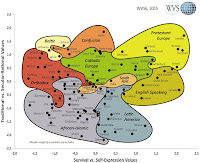A matter of life and death

"The theme of this year's World Water Day on March 22—Leaving No One Behind—is a commitment to those who are disproportionately affected by insufficient access to safe water, such as women, children, refugees, and socioeconomically marginalised people. The urgency of this task is cemented in Sustainable Development Goal (SDG) 6—to ensure the availability and sustainable management of water, the provision of adequate and equitable sanitation and hygiene, and cessation of open defecation by 2030. The staggering number of people for whom safe water trickles in insufficient quantity and quality—2 billion according to the UN—begs the question of how such a target could ever be reached. According to the UN, voices of marginalised people must be heard in decision making processes.
In India, the need to achieve SDG 6 is acute. In 2014, 40% of the population relied on open defecation, poor sanitation was linked to one in ten deaths, and diarrhoea was a major killer of young children. When Prime Minister Narendra Modi came to power in 2014, he vowed to provide clean water and improve sanitation for the 1·34 billion population. He introduced the Swachh Bharat (Clean India) Mission, key elements of which were to construct 111 million toilets and end open defecation by the 150th anniversary of Mahatma Gandhi's birth in October this year. But, as V R Raman and colleagues explain in this week's issue, large parts of the population are clearly being left behind: open defecation remains widely present, caused in part by incredibly inadequate and unsafe access to sanitation and toilets. Although a national survey reported that 96·5% of those with access to toilets use them, an unacceptable number of Indian citizens do not have access to basic hygiene and sanitation—a human right to ensure health and dignity.“On the question of water…It's quite simply a matter of life and death”—said Michael Møller, UN Director-General, at the first World Summit on Leaving No One Behind in February, 2019. Innovative solutions in water and sanitation delivery are the way forward. In India, as in many other parts of the world, people will continue to be left behind unless these solutions are sustainable, culturally competent, safe, and convenient." - The Lancet

Kommentarer
Skicka en kommentar